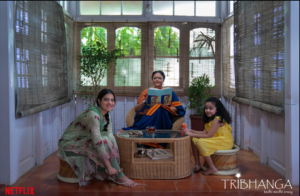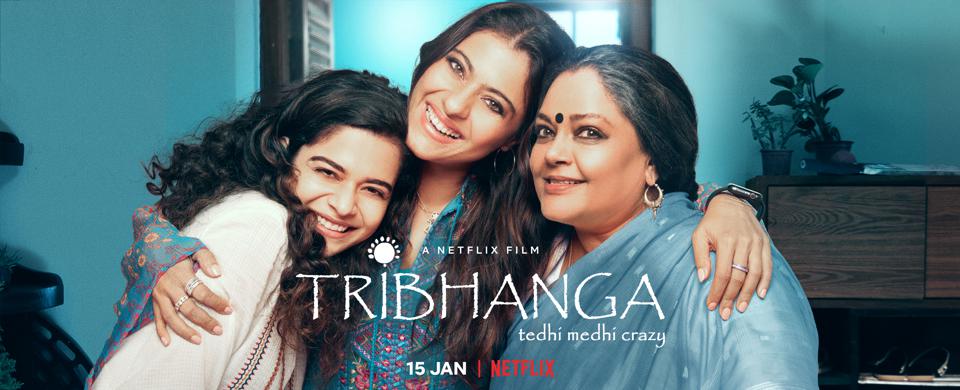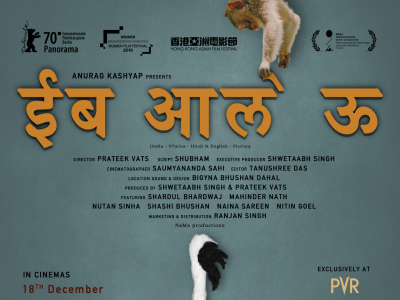Netflix’s Tribhanga explores nuances and complexities of a mother-daughter relationship
Being a woman was and never has been an easy task – especially in a patriarchal society like India. Here, a mother is synonymous to a ‘care-giver’ and for her to have desires and dreams of her own are deemed wrong. Such a thought is engraved so deep within us, that children also often forget to see their mothers as an individual first… and a mother thereafter. Netflix’s Tribhanga: Tedhi Medhi Crazy explores such nuances and complexities of a mother-daughter relationship, and does so beautifully.
Made by actor turned director Renuka Shahane, Tribhanga stars Kajol, Tanvi Azmi and Mithila Palkar in the lead. The film is an ode to womanhood. Here, we encounter tales of women, each of them unique in their own ways, and carries their own traumas, struggles and conflicts — and in the core of all this lies the central theme of motherhood.
A celebrity and Odissi dancer Anuradha Apte (Kajol) revisits her childhood traumas after her mother Nayantara Apte (Azmi), an award-winning novelist, suffers a brain stroke. Seeing her mother, with whom she shares an estranged relationship, at deathbed Anu – initially still holds onto her grievances, but slowly realises there’s much more than meets the eye. And here, her daughter Masha (Palkar) also has a role to play.
Nayantara is a rebel, and in a society like ours, especially for women – it comes against humongous odds. Whether it’s her decision to leave her marital home along with her two children Anu and Robindra (Vaibhav Tatwawaadi) to follow her dreams or be it the decision to give her kids her own identity (surname) – she lived life on her own terms, unapologetically. These, though, came from a place of her strong will and independence, but the consequences of such choices left an impact on her children’s lives – and not in a good way.
Thus, Anu fails to see her mother’s courage and fight for freedom as noble. Instead, as a teenager who wants to have a “normal” family, she feels humiliated when everyone bullies her at school for being a “divorcee” mother’s child. Or be it the sexual harassment she falls prey to by her step-father, which Nayan fails to see — thereby, damaging the mother-daughter relationship beyond repair.

But years later, when she finds herself at a difficult place and tries to come to terms with her past – attempting to reconnect with her mother, who may be in a state of coma but her presence very much fills her life.
Tribhanga, through its soul-stirring tale, attempts to create nostalgia. It’s like the box from childhood we all have, which we keep buried deep somewhere in the backyard – fearing it might bring back the memories, good and bad. When opened, it stirs us from the inside yet heals us from what was causing the hurt. This is the experience the film offers.
The film’s ensemble had done complete justice to their parts. Kajol lights up the screen with her presence, imbibing multitude of characteristics – from someone with angst, who is brash and abuses openly – and is yet vulnerable, broken and a protective mother. Azmi adds depth to her character’s strong persona, and does so with finesse. Palkar perfectly imbues the simplicity her character Masha demands. Kunaal Roy Kapoor as Milan, a novice writer and Nayan’s biographer, makes his character believable and authentic.
It’s not every day that we get to see stories of women, made and told by a woman, onscreen. Thus getting to see such empowering tales on-screen is always welcome. Tribhanga, here, shines in all its glory. But it misses a mark with the jumpiness of its narrative – which could have been smoother. Also, certain emotionally rich scenes could have used more depth to it.





